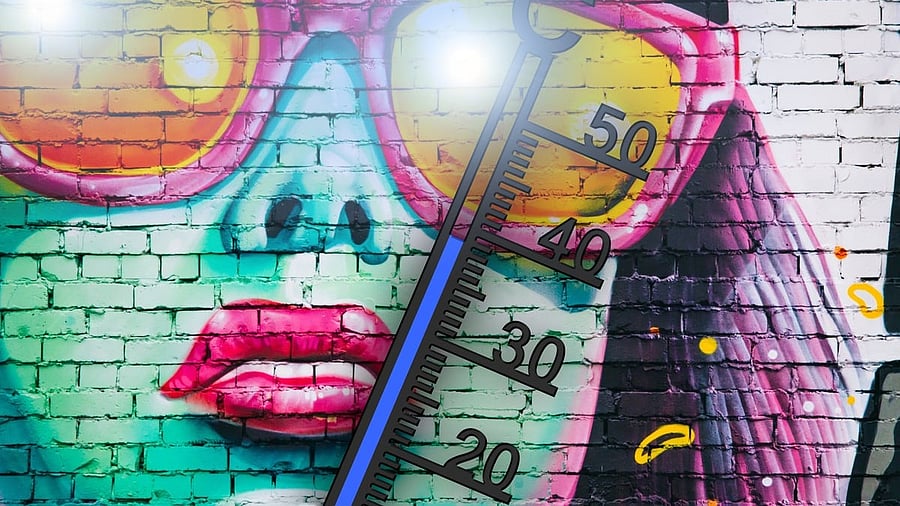
Image for representation.
Credit: Pixabay Photo
By 2050, extreme heat could claim the lives of a staggering 2,04,000 women annually in India, Nigeria, and the United States, starkly illustrating the gendered impacts of climate change.
As India swelters under yet another heatwave, with nearly 11 states already on high alert, it’s imperative to delve into the multifaceted risks confronting women.
Climate change isn’t just about soaring temperatures; it’s a profound threat to women’s health and well-being, amplifying existing inequalities and vulnerabilities. In rural India, where healthcare infrastructure is already precarious, heat waves pose a formidable challenge.
Disrupting access to essential reproductive healthcare services, these extreme weather events strand women without crucial support. Recent research from Tamil
Nadu reveals that extreme heat stress doubles the risk of stillbirths and miscarriages among expectant mothers.
It is a well-documented story in Beed, where women in the sugarcane industry undergo hysterectomies just to avoid sick days from menstruation or motherhood, as climate plays havoc with their agricultural yield and livelihood.
Recent studies show a direct correlation between sterilisation rates and the mounting stressors of climate change. Furthermore, the pervasive environmental degradation, along with rampant air and water pollution, compounds the reproductive health challenges faced by women, leading to heightened rates of infertility and pregnancy-related complications.
Adding to this burden, women in many lower-income developing countries, including India, bear a double burden. They labour in informal sectors devoid of basic labour protections while also shouldering the burden of caregiving for others. The harsh effects of extreme heat events have only exacerbated their struggles, adding layers of complexity to their experiences.
Another analysis paints a dire picture: since 2005, there has been a gradual yet alarming rise in heat-related deaths among women in India. It’s abundantly clear that urgent action is needed to address women’s multifaceted challenges while coping with climate change.
An uphill climb
Navigating the uphill battle against climate change is made even more challenging for marginalised women due to resource constraints and inadequate adaptive practices. Access to clean water and safe sanitation is crucial for preventing heat-
related illnesses but it remains a distant aspiration for many in marginalised communities.
In urban centres, street vendors, garment factory workers, and construction labourers endure gruelling conditions without access to even basic amenities like drinking water or shaded breaks. For women, the lack of access to clean water is not just an inconvenience; it’s a matter of survival.
Without clean water, they are forced to rely on contaminated sources, increasing the risk of water-borne illnesses and exacerbating health risks. Recent cholera outbreaks in Bengaluru remind us that climate change-induced water scarcity and poor sanitation can trigger public health crises that hit marginalised communities hard.
In addition to health risks, the lack of access to clean water and sanitation also has broader implications for marginalised women’s well-being. For example, in many communities, women and girls are responsible for collecting water, a time-consuming task that detracts from educational and economic opportunities. As a result, they are often unable to pursue education or employment, perpetuating the
cycle of poverty and marginalisation.
Being part of the solution
Addressing these interconnected crises requires comprehensive solutions that extend beyond mere healthcare provision. While strengthening healthcare systems is essential, it must be complemented by broader efforts aimed at enhancing labour rights, improving public infrastructure, and expanding social protection schemes.
Future research holds promise in unravelling the connections between climate change and women’s health, particularly in vulnerable regions like rural India.
Understanding how heatwaves and environmental stressors affect reproductive health and access to healthcare can inform targeted interventions to mitigate these risks.
Financial instruments geared towards investing in clean cooling solutions can offer hope. By directing funds towards cooling initiatives designed with the people they aim to support, we can ensure equitable access to cooling technologies that safeguard health and well-being.
These investments will not only mitigate the immediate impacts of heatwaves but also foster resilience and empower communities to adapt to a changing climate.
In essence, acknowledging the distinct challenges confronting women amidst climate change is essential to forge a path towards a more equitable future.
(The author is a public health specialist.)